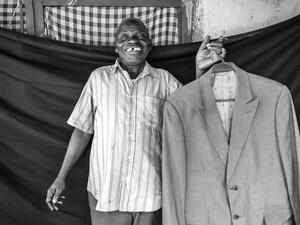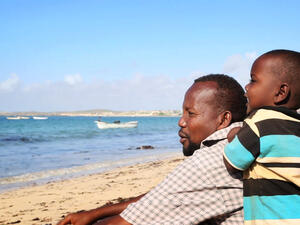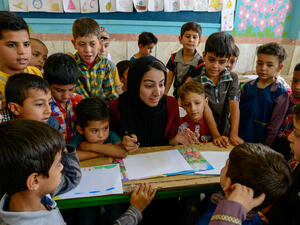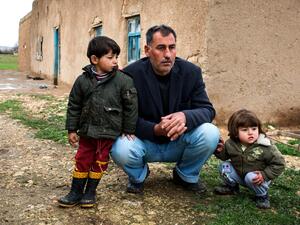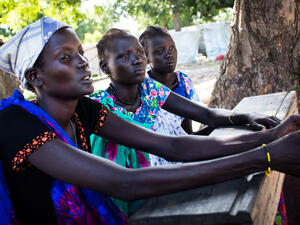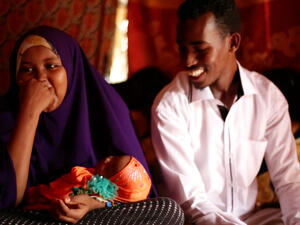UNHCR issues a non-return advisory for South Sudan
UNHCR issues a non-return advisory for South Sudan
Yesterday, UNHCR released a non-return advisory for South Sudanese fleeing the current conflict, which has so far uprooted some 870,000 people.
The conflict since mid-December 2013 has displaced 738,000 people within South Sudan and 130,400 people who have fled to neighbouring countries, primarily Ethiopia, Kenya, Sudan, and Uganda. Nearly 60 percent of the internally displaced people have sought refuge in or around UN bases in South Sudan.
The conflict began on 15 December with an exchange of fire in the capital, Juba, between presidential guards and soldiers loyal to the former vice president, Riek Machar. The confrontation later grew into widespread violence across South Sudan, where the political and security situation remains fluid despite the signing of a cessation of hostilities agreement on 23 January 2014.
UNHCR welcomes the decision of most Governments in the region to recognize persons who fled South Sudan as refugees on a prima facie basis, as well as their generous response and cooperation with UNHCR and other humanitarian actors. It encourages other countries to do the same and to facilitate humanitarian access and delivery.
Considering the continued violence, UNHCR's guidelines note that people fleeing South Sudan are likely to meet the criteria for refugee status under the 1951 Refugee Convention, or the 1969 OAU Convention. The OAU, the Organization of African Union, is the continental body renamed the African Union.
UNHCR therefore recommends that States refrain from returning nationals or residents of South Sudan to the country, unless cases involve people who may have committed serious human right violations.
UNHCR's advisory against forced returns to South Sudan remains in effect until security, rule of law and the human rights conditions improve enough to allow for safe and dignified returns.
-
"UNHCR Position on Returns to South Sudan" (Refworld)
For more information on this topic, please contact:
- In Nairobi: Kitty McKinsey (Regional) on mobile +254 735 337 608
- In Geneva: Fatoumata Lejeune-Kaba on mobile +41 79 249 3483
- In Geneva: Daniel MacIsaac on mobile +41 79 200 7617


